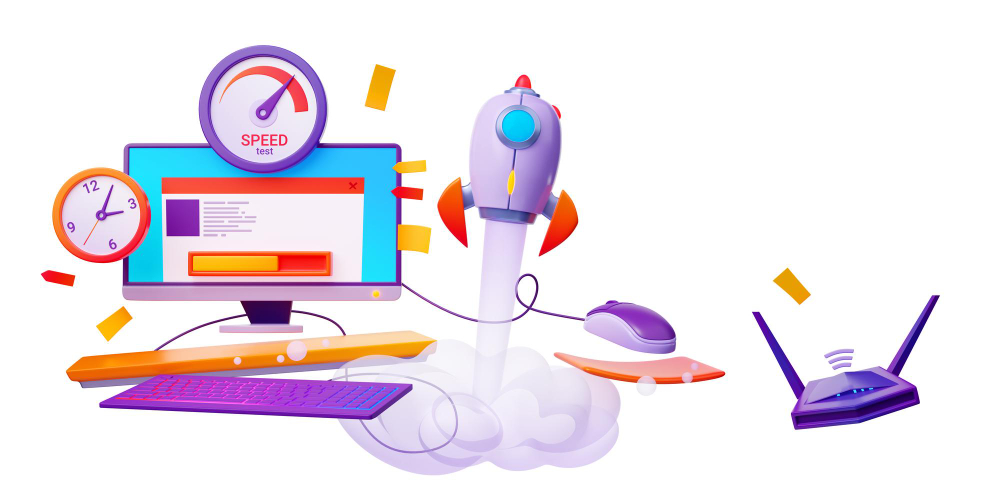Look, hiring remote e-commerce developers isn’t like hiring your typical web dev. I’ve seen too many tech leaders treat it like they’re just looking for someone who can code up a contact form and call it a day. That’s how you end up with a beautiful site that crashes every time someone tries to checkout during a flash sale.
E-commerce development is a different beast entirely. You’re dealing with money, inventory, customer data, and all the messy integrations that come with running a real business online. And when you throw remote work into the mix? Well, let’s just say there’s a lot more that can go wrong.
The thing is, remote hiring has completely changed the game. The best developers aren’t sitting in Silicon Valley anymore—they’re scattered across the globe, and honestly, some of the sharpest minds I’ve worked with are based in places like India. But finding them? That’s where most people mess up.
The Remote Developer Reality Check
Here’s what nobody tells you about remote e-commerce developers: the good ones are already working. They’re not browsing job boards hoping someone will give them a chance. They’re busy building systems that actually work.
Remote work isn’t just about having a laptop and WiFi. The developers who really get e-commerce understand that your site being down at 2 AM PST could mean thousands in lost revenue. They know that payment processing failures don’t wait for Monday morning stand-ups. 
And here’s something interesting—some of the best remote developers come from regions where they’ve had to build e-commerce solutions with limited resources. Take ecommerce developers in Coimbatore, for example. They’ve learned to optimize for speed and efficiency out of necessity, not because it was in some best practices document.
The talent pool is deeper than you think, but you’ve got to know how to fish in it.
Getting Clear on What You Actually Need
Before you write a single job description, you need to figure out what you’re really building. Are you talking about a Shopify store with some custom features, or are you building the next Amazon? Because those require completely different skillsets.
Most startups I work with think they need full-stack unicorns who can do everything. Reality check: those people are expensive and hard to find. You’re probably better off getting really good at one or two key areas and finding developers who excel there.
The platform question matters more than you think. If you’re going custom, you need someone who understands database design for e-commerce. And I don’t mean someone who can set up a users table—I mean someone who gets why inventory management is actually complicated when you have variants, bundles, and real-time stock levels across multiple sales channels.
Mobile isn’t optional anymore either. If your developer doesn’t automatically think mobile-first for e-commerce, they’re probably not the right fit. Half your customers are shopping on their phones while watching Netflix.
Finding Developers Who Actually Exist
Job boards are where developers go to die. The good ones aren’t there. They’re on GitHub, contributing to open source projects, answering questions on Stack Overflow, or writing technical blog posts that actually help people solve real problems.
When I’m looking for remote developers, I spend more time looking at their code than their resume. GitHub tells you everything you need to know about how someone thinks about problems. Do they write clear commit messages? Do they contribute to projects they don’t get paid for? That’s how you spot someone who actually cares about the craft. 
Portfolio reviews are tricky in e-commerce because a lot of the good stuff is behind login walls or NDAs. But ask the right questions: “How did you handle inventory synchronization across multiple warehouses?” If they light up and start talking about database triggers and event-driven architecture, you might have found someone good.
The communication thing is huge for remote work. I’ve worked with brilliant developers who couldn’t explain a technical problem to save their lives. In a remote setup, that’s a deal-breaker. You need people who can document their thinking and explain complex issues clearly.
Testing for E-commerce Chops
Generic coding tests are useless for e-commerce hiring. You want to see how someone thinks about business logic, not whether they can reverse a binary tree.
Give them real scenarios: “Customer places an order, payment goes through, but the inventory system shows we’re out of stock. Walk me through how you’d handle this.” Their answer tells you if they understand that e-commerce is about more than just moving data around.
Database design questions reveal everything. Ask them to design a schema for a multi-vendor marketplace with configurable product options. You’ll quickly see who understands the complexity of real e-commerce data models versus who’s just done a few tutorial projects.
Performance matters differently in e-commerce. A slow blog is annoying. A slow checkout process costs money immediately. Look for developers who talk about caching strategies, CDN usage, and database optimization without being prompted.
API integration experience is non-negotiable these days. Stripe, PayPal, shipping APIs, inventory management systems—everything talks to everything else. The best ecommerce developers for hire have battle scars from webhook failures and rate limiting issues.
Remote Work Skills That Actually Matter
Time zones can be your friend if you play them right. While your US customers are sleeping, developers in different regions can be pushing fixes and updates. But this only works if they understand e-commerce urgency.
The best remote developers I’ve worked with have systems. They’ve got backup internet, reliable power, and dedicated workspace. These aren’t nice-to-haves—they’re requirements when you’re dealing with live transactions.
Documentation becomes critical in remote setups. Not just code comments, but decision documentation. Why did they choose Redis over Memcached? What were the trade-offs? If they can’t explain their thinking clearly, you’re going to have problems six months down the road.
Look for people who’ve worked with startups before. The “move fast and break things” mentality doesn’t work the same way in e-commerce, but you still need people who can adapt quickly when requirements change.
Making the Interview Process Work
Forget whiteboard coding. Give them access to Google, Stack Overflow, and documentation. That’s how they’ll actually work, so test them in that environment.
Pair programming sessions over video calls tell you more about a candidate than any coding test. You see how they handle feedback, how they communicate their thinking, and whether they can actually collaborate effectively.
Architecture discussions are where the good developers shine. Present them with a scaling problem: “We’re handling 1,000 orders a day now, but we expect 50,000 during Black Friday.” Listen to how they break down the problem. Do they think about database bottlenecks? CDN strategies? Queue systems?
Include people from different time zones in the interview process if possible. You want to see how candidates adapt their communication style and whether they can be productive when most of the team is offline.
Getting Remote Developers Up to Speed
Remote onboarding for e-commerce is more complex than regular web development. They need staging environments, test payment accounts, API credentials, and access to all the third-party services you use. Get this stuff ready before they start.
Your documentation needs to explain context, not just functionality. Why did you choose that payment processor? What were the alternatives you considered? This background helps remote developers make better decisions when they encounter similar choices.
Set up clear escalation paths from day one. What’s urgent enough to wake someone up? How should they handle issues that could impact live transactions? These conversations prevent 3 AM panic calls later.
Give new developers non-critical projects first. Let them get familiar with your codebase and processes before they’re touching payment processing or inventory management systems.
Why We Built Noukha Different
Here’s the thing about hiring individual remote developers—it’s a pain. You spend weeks screening people, most don’t work out, and even when you find good ones, you’re still managing all the communication overhead.
That’s why we started Noukha. We specialize in building custom AI-powered solutions and scalable MVPs for startups who need to move fast. Instead of hiring individual developers and hoping they work out, you get a dedicated team that already knows how to work together.
We’re based in Coimbatore with presence in Canada, which means we can provide development support across multiple time zones. Our team has built everything from complex e-commerce platforms to AI-powered recommendation engines, and we understand the startup world where requirements change daily.
The difference is that we handle all the screening, team coordination, and project management. You get experienced developers who’ve already worked together on similar projects, without the months of trial and error that comes with building a remote team from scratch.
The Hard Truth About Remote Hiring
Most remote hiring fails because companies try to replicate their in-office processes remotely. That doesn’t work, especially for e-commerce development where technical decisions have immediate business impact.
You need developers who can work independently but also know when to ask for help. E-commerce projects have too many moving parts for lone wolves, but they also can’t wait for committee decisions on every technical choice.
The best remote developers are often working on multiple projects. That’s not necessarily a bad thing—it keeps them sharp and exposes them to different approaches. But you need to be clear about availability expectations and response times.
Don’t try to hire the cheapest developers you can find. Good remote developers cost money, but they’re usually still more cost-effective than local hires when you factor in productivity and reduced overhead.
Making It Work Long-term
Remote e-commerce development teams need more structure than other types of remote work. You’re dealing with live systems that handle real money, so communication protocols and escalation procedures are critical.
Regular check-ins matter, but they should focus on blockers and decisions, not status updates. Good remote developers will keep you informed about progress without being asked.
Invest in good project management and communication tools. Slack, GitHub, and whatever project management tool you prefer aren’t optional—they’re infrastructure for remote teams.
And remember, the goal isn’t to find the perfect developer. It’s to find developers who can grow with your business and adapt as your needs change. The e-commerce landscape evolves fast, and your development team needs to evolve with it.
Frequently Asked Questions
How long should I expect the hiring process to take?
If you’re going the traditional route—posting jobs, screening resumes, conducting interviews—plan on 2-3 months minimum. Most tech leaders underestimate how long it takes to find good remote e-commerce developers who are actually available and interested. The screening process alone takes longer because you need to evaluate both technical skills and remote work capabilities. Working with development partners can cut this down significantly since they’ve already done the vetting work.
What’s the biggest mistake companies make when hiring remote developers?
Treating remote developers like local developers who just happen to work from home. Remote work requires different processes, communication styles, and management approaches. I’ve seen companies hire great developers and then frustrate them with constant check-ins, unclear requirements, and poor documentation. The other big mistake is focusing too much on cost instead of value—cheap developers often end up being expensive when you factor in revision time and missed deadlines.
How do I know if a remote developer actually understands e-commerce?
Ask them about problems they’ve solved, not technologies they’ve used. Anyone can list payment processors they’ve integrated with, but can they explain how to handle failed payment notifications? Have they dealt with inventory synchronization across multiple sales channels? Do they understand why you can’t just use regular database transactions for financial operations? The depth of their answers tells you everything about their real-world e-commerce experience.



